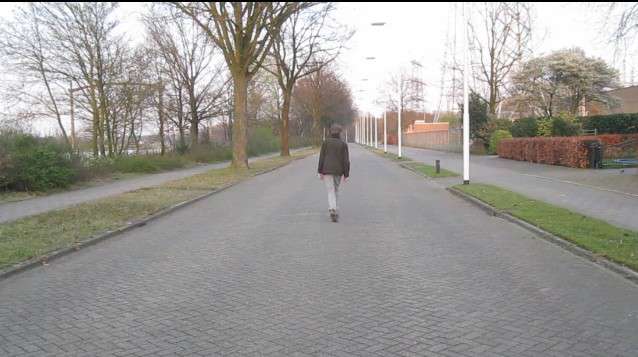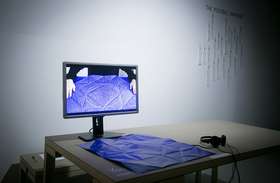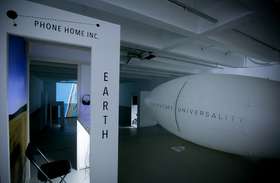

The Netherlands is so flat that you can see the horizon without any obstacles. My friend, standing next to me, starts to walk away from me and counts her steps: “1 2 3 4 5 6 7 8...”. She makes steps of 1 meter in 1 second. After 15 steps her voice shrinks, I tell hear to scream from now on: “16! 17! 18!...”. After 100 meter I notice that her voice is not perfectly in sync with her steps anymore. I gave my friend a loudspeaker and I ask her to use it, she continues walking till the horizon. I watch her through my binoculars and at the moment I see her stop walking I hear: “83 84 85 86 87 88 89 90 91 92 93 94 95 96 97 98 99 5000!”
Communicating from far distance is difficult and it's obvious that sound isn't the best medium. But even light doesn't reach so far; a big lighthouse has a reach of only 50 km. The light itself goes further but due to the curved surface of the earth it is not visible anymore after 50 km. With the invention of the radio it became possible to communicate over longer distance with the speed of light. Light is so incredibly fast that it seems to be the perfect medium for long-distance communication, but just the fact that the speed of light is finite means that the further the communications takes place, the more delay you will get.
Ideally it would take a radio signal only 67 milliseconds to travel to the other side of the world. The delay of radio-communication on earth seems insignificant and can be reduced using buffering techniques. Outside earth, in the vastness of space, it is another story: Ground control in conversation with Apollo 8, which was in orbit of the moon, had to wait three seconds for an answer. When the first people will go to Mars and safely land on the surface, we will applause in between 5 to 20 minutes later, depending on the distance between Earth and Mars. They will hear us applauding 10 to 40 minutes after the landing!
It takes time for light to travel. This means that at the moment I saw my friend stop walking at the horizon, not only her voice was delayed but also her image. A quick calculation tells me that I saw her stop walking 17 microseconds later than she actually did. At the horizon the sun sets and I wait for my friend to walk back to me. Together we look up into the dark sky and gaze at the stars. We realize the lights we see have been travelling from far far away and it took ages, centuries and even billions of years to travel towards us. In the dark blue sky we look into the past, we probably see some stars which died already thousands of years ago, only their light is still travelling.
Signals from one event don't arrive in the brain at the same moment, like the sound and the image of my friend. Our brain is located in a dark place inside our skull and has to wait for information caught by the senses and transported to the brain. The brain has a the job to solve the information puzzle: which information belongs to which event and in what order? To solve the puzzle the only thing the brain can do is to wait for the slowest information to arrive. Because the information has to travel through the nervous system and has to be processed in the brain, it doesn't always mean that fast-travelling information, like light, is perceived first. In sports for example, the start is marked with the sound of the gun, instead of the flash, because our brain is quicker in processing sound than light.
Survival requires to live as close as possible to the present. Humans have a quite good resolution when making temporal judgements. Though some unfortunates have problems with their temporal-order judgements; reading difficulties in dyslexia may be problems with getting the timing right between the auditory and visual representations. Symptoms of schizophrenia like misattributions of credit ("My hand moved, but I didn't move it") and auditory hallucinations can be caused by temporal judgement failures.
What we perceive as present is in fact information from events that happened in the past. Because of the time it takes for signals to travel and to process the signals in the brain the present is perceived differently by different observers. Now humans are active in outer-space and the distances in human communication is growing, the delay in communication is also growing. Dealing with long-distance communication you should be aware of the problem it gives to the 'present'. Are we aware of this? And how do we deal with delay of information?



